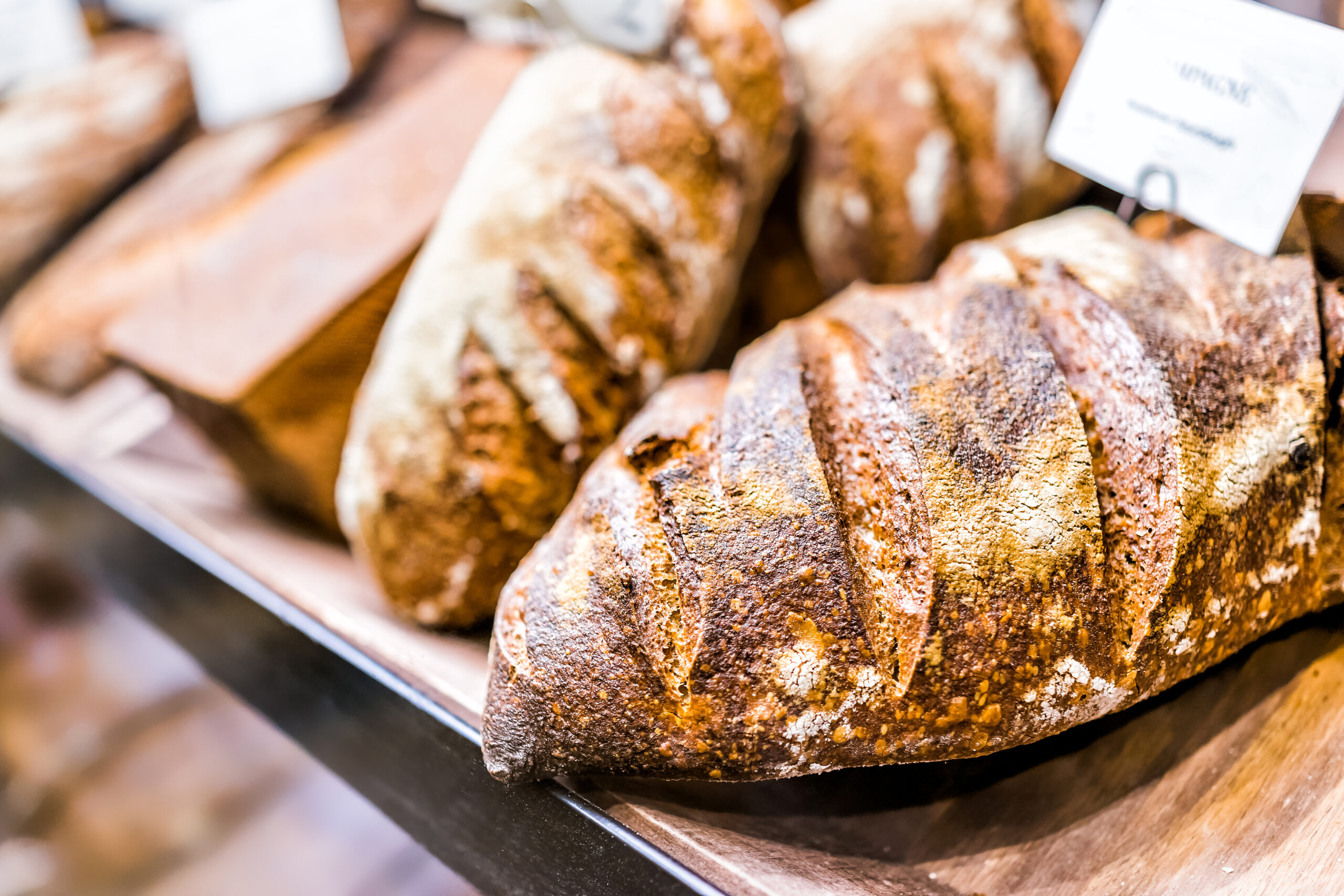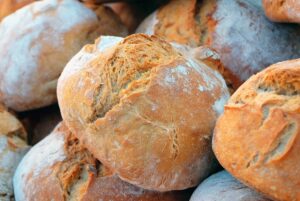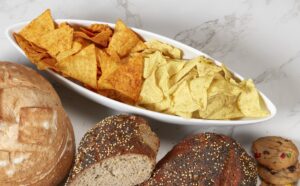When manufacturing new products, there are a handful of common food & beverage emulsifiers used during production. But what exactly is an emulsifier? They act as a bond that holds ingredients altogether, ensuring they don’t separate. Two of the most common ingredients – oil and water. They make finished products soft and smooth in texture, improve the quality, and keep it firm and stabilized. They are commonly used in creamy sauces, dressings, ice cream, and baked goods among other products.

Food manufacturing requires powerful equipment like industrial mixers that will help mill, homogenize, disperse, and emulsify. Once that is accomplished, it is key to make sure that the ingredients used during that process will no longer separate from one another. In order to do this, emulsifiers can be added to the formulation to stabilize it.
Below are two of the most common emulsifiers used in the food & beverage industry.
Lecithin
Lecithin is most commonly derived from soy, sunflower seeds, and eggs. It is used often in commercial baking. It is composed of fatty compounds and prevents the split of water and oil particles. The droplets of oil in water are kept safe by this emulsifier, increasing the stability and shelf life of the food. Lecithin also has been said to have many health benefits. It prevents high cholesterol and cirrhosis caused by drinking alcohol and is related to improving brain and muscle function. Lecithin is used in a variety of products including baked goods, confections, dairy products, margarine, and other spreads.
Mono and Diglycerides
Monoglycerides are a class of glycerides that are composed of a molecule of glycerol linked to a fatty acid via an ester bond. In simple terms, they serve as an instrument that equally distributes water into the oil when using combining them in production. Monoglycerides are commonly found in chocolates. It makes the chocolate give consumers the melt in your mouth sensational feeling, adding to the tastefulness of the product. These are the most used food emulsifiers. They are produced when palatable oils are combined with glycerin. Aside from chocolates, baked goods and dairy products are the ones to use them most often as well.
Emulsifiers are a very versatile ingredient providing an array of functions for food products. Aside from holding the ingredients together in products, emulsifiers make them much more enjoyable. They also can help with appearance and preservation.
Interested in our emulsifier options? Get in touch with us today.



